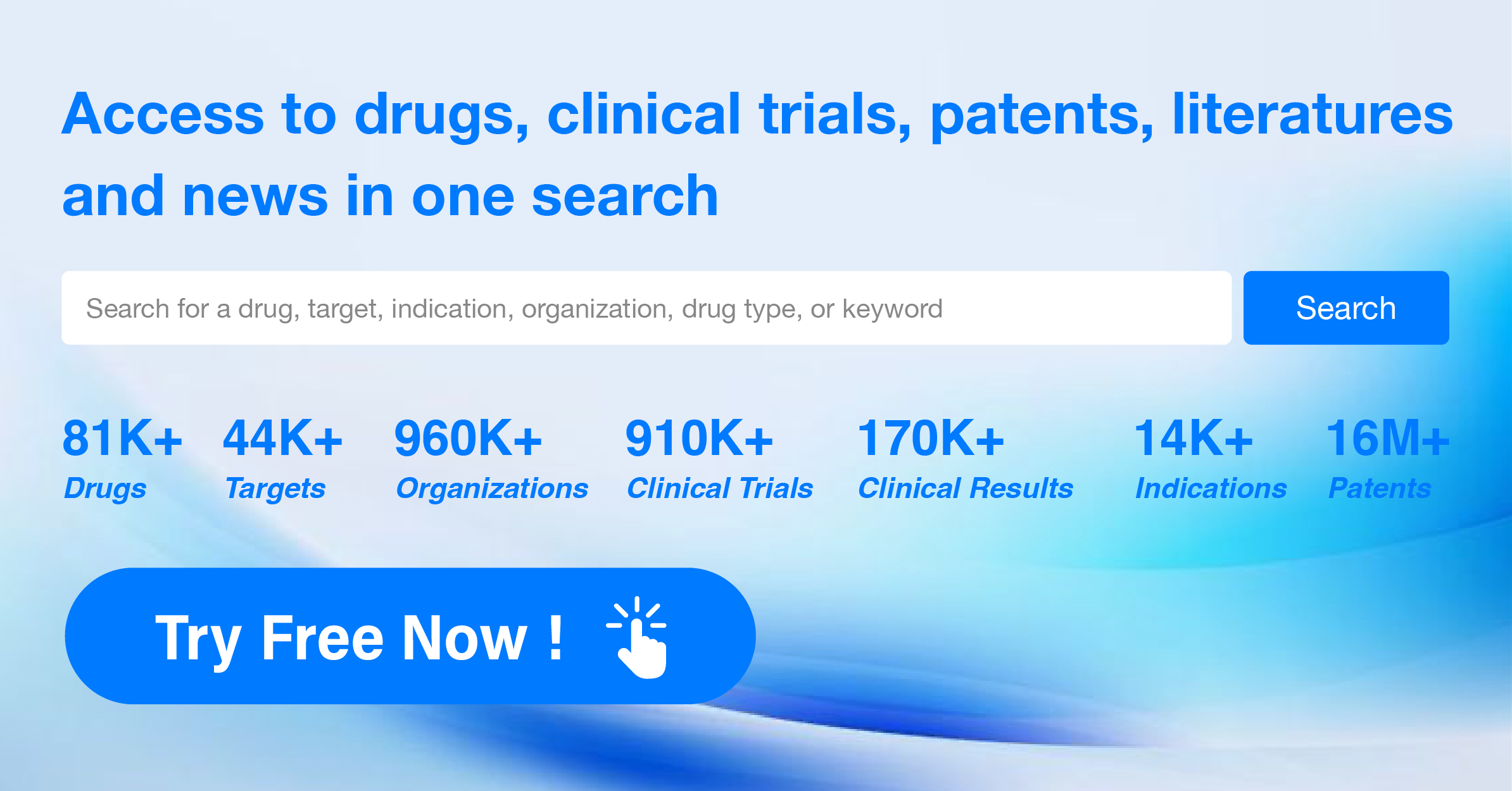Pharma Frontiers: Daily Digest of Global Pharmaceutical News - April 11
1.Novo Nordisk's amycretin Filed for Clinical Trials in China, Achieving Over 13% Weight Reduction in 12 Weeks!
On April 10th, the official website of the Center for Drug Evaluation (CDE) of the China National Medical Products Administration (NMPA) disclosed that the clinical trial application for Novo Nordisk's new drug, amycretin tablets, has been accepted.
Public information indicates that amycretin is an oral long-acting dual agonist for GLP-1 receptors and insulin receptors being developed by Novo Nordisk, representing a new generation of weight loss therapy. In a recent small-scale Phase 1 clinical study disclosed by Novo Nordisk, patients who received treatment with this product showed a significant weight reduction of 13.1% after 12 weeks of treatment (versus 1.1% in the placebo group), demonstrating rapid weight loss effects and promising clinical application potential.
Amylin, apart from the GLP-1 signaling pathway, is another hormone related to hunger and satiety. Studies have shown that amylin can reduce energy intake, regulate food choices and preferences, and exert glycemic regulatory effects in conjunction with insulin by suppressing postprandial glucagon release and delaying gastric emptying. Additionally, the amylin receptor is also expected to have a synergistic effect with GLP-1 receptor agonists.
According to Novo Nordisk’s official website, amycretin is a long-acting synergistic agonist for the GLP-1R and insulin receptors, and is being developed in two formulations: subcutaneous injection (once a week) and oral administration (once a day), with the intended indication being obesity. In March of this current year, Novo Nordisk announced the latest clinical trial results for the oral form of amycretin. The trial, consisting of 16 patients, documented a significant reduction in body weight by 13.1% after a 12-week treatment period, compared to a reduction of just 1.1% in the placebo group. In addition, amycretin exhibited positive pharmacokinetic properties, as well as safety, tolerability, and side effect profiles similar to those of other GLP-1 therapies being developed by the company.
2. Abbisko Therapeutics Announces Research Results for FGFR4 Inhibitor
On April 10th, Abbisko Therapeutics announced that it would present the latest preclinical combination study results for its highly selective small-molecule FGFR4 inhibitor, irpagratinib, orally at the 2024 American Association for Cancer Research (AACR) Annual Meeting. Furthermore, it showcased the newest preclinical study data for its innovative CSF-1R inhibitor, pimicotinib, and oral small-molecule PD-L1 inhibitor in poster format, with research related to the CSF-1R inhibitor also selected for the Late-Breaking Research session at the AACR conference.
Hepatocellular carcinoma (HCC) is a common type of primary liver cancer. Dysregulation of the FGF19-FGFR4 signaling pathway accounts for approximately 30% of HCC cases and plays a pivotal role in driving the development of HCC tumors. Irpagratinib is a highly active, highly selective FGFR4 inhibitor. During an ongoing Phase 1b clinical study, promising antitumor activity was demonstrated, with a 40.7% objective response rate observed in patients with HCC overexpressing FGF19 who received treatment. To further expand the therapeutic potential of irpagratinib, Abbisko Therapeutics conducted a series of preclinical translational studies to explore the efficacy and mechanisms of combination treatment.
According to research data presented at the AACR meeting, irpagratinib demonstrated a broad spectrum of synergistic antitumor effects when used in combination with various therapeutic drugs.
3. Pfizer Achieves Another Success in Phase III RSV Vaccine Study, Plans to Expand to 18-59 age group
On April 9th, Pfizer announced the key Phase III MONeT study, evaluating the immunogenicity and safety of its Respiratory Syncytial Virus (RSV) vaccine PF-06928316 (commercial name: Abrysvo) in high-risk adult populations for RSV infection, achieved its primary endpoints. The study is a multicenter, randomized, double-blind, placebo-controlled clinical trial designed to assess the preventive effects of Abrysvo versus a placebo in high-risk adults aged 18-59 susceptible to lower respiratory tract diseases (LRTD) caused by RSV infection.
Sub-study A, a double-blind study, included a chronic disease cohort (n=681) where subjects received a single dose of 120µg; Sub-study B was an open-label study including an immunocompromised cohort (n=200) where subjects received two doses of 120µg. Results indicate that the study met both its co-primary immunogenicity endpoints and primary safety endpoints: Abrysvo's neutralizing response to RSV-A and RSV-B was non-inferior to its levels in the Phase III RENOIR study. One month after vaccination with Abrysvo, the subjects' serum neutralizing titers against RSV-A and RSV-B increased at least fourfold compared to pre-vaccination. Throughout the trial, Abrysvo was well-tolerated, with a safety profile consistent with previous studies. In addition, Pfizer recruited a diverse range of participants for this study, reflective of the demographic diversity of the United States and representative of a balanced set under primary care conditions.
Pfizer intends to submit these data to regulatory authorities and apply for the expansion of Abrysvo’s indication from older adults aged 60 and over to all adults aged 18 and over. Abrysvo, a bivalent RSV vaccine, was first approved for marketing in the United States in May 2023 for the prevention of RSV infection in individuals over 60 years old.
4. Simcere Zaiming Pharmaceutical's Tri-specific Antibody SIM0500 Granted FDA Fast Track Designation
On April 9th, Simcere Zaiming announced that its humanized GPRC5D-BCMA-CD3 tri-specific antibody, SIM0500, has been granted Fast Track designation by the FDA for the following indication: treatment of patients with multiple myeloma who have received at least three prior lines of therapy (including one proteasome inhibitor, one immunomodulatory agent, and one anti-CD38 monoclonal antibody) and are refractory to or intolerant of established therapies known to provide clinical benefit.
Multiple myeloma (MM) is the second most common hematologic malignancy. Despite significant improvements in prognosis with new therapies, the majority of MM patients are not curable and prone to relapse, with the difficulty of treatment for multiple relapsed MM increasing with each recurrence. These patients still need more effective, safer, and affordable therapeutic options.
SIM0500, a humanized GPRC5D-BCMA-CD3 tri-specific antibody, demonstrates a synergistic effect of multiple antibodies by activating T cells specific to tumor cells through a combination of low-affinity, high-target CD3 antibodies and anti-tumor-associated antibodies. Preclinical studies have shown that SIM0500 has significant tumor-killing effects, good tolerability, a low effective dose, and no tumor relapse after discontinuation, which is expected to overcome current treatment resistance and has the potential to become a leading candidate drug in the treatment of multiple myeloma. Currently, SIM0500 is concurrently undergoing clinical development in both China and the United States.
5. Coherent Biopharma's Bi-XDC CBP-1019 Granted FDA Orphan Drug Designation for Esophageal Cancer
On April 9th, Coherent Biopharma announced that its independently developed second-generation Bi-XDC dual-ligand conjugate drug, CBP-1019, has received FDA Orphan Drug designation for the treatment of esophageal cancer. This is the second Orphan Drug designation for CBP-1019, following its designation for the treatment of pancreatic cancer in September of the previous year.
Esophageal cancer is a hidden and aggressive malignant tumor with a short survival period for patients with advanced stages, and many patients with late-stage disease are eager for new medicines that can improve treatment outcomes.
CBP-1019, Coherent Biopharma’s second-generation Bi-XDC product, is a novel targeted conjugate drug. This type of drug design allows for precise and efficient delivery of the necessary drug payload to specific cells using dual-ligand technology. Moreover, by replacing an antibody with a much smaller pair of ligands, the drugability requirements for a single target are reduced, expanding the range of possible targets for Bi-XDC drugs. CBP-1019 uses the dual ligands FRα/TRPV6 to deliver a new generation of camptothecin analogs, demonstrating significant anti-tumor activity and improved safety. It can also effectively deliver more payload to patients with low receptor expression. Current clinical studies show that CBP-1019 has good safety and preliminary efficacy, suppressing tumors in various cancers including gynecological tumors, lung cancer, pancreatic cancer, gastrointestinal tumors, and genitourinary tumors.
6. Biokin Pharmaceutical's Bispecific ADC BL-B01D1 Proposed to Enter Breakthrough Therapy Designation
On April 9th, it was made public on the website of the Center for Drug Evaluation (CDE) of China's National Medical Products Administration that Biokin Pharmaceutical's injectable BL-B01D1 is proposed to enter the breakthrough therapy designation. This is geared towards indications for patients with recurrent or metastatic nasopharyngeal carcinoma who have previously undergone PD-1/PD-L1 monoclonal antibody treatment and failed at least two lines of chemotherapy (with at least one containing platinum). Publicly available information indicates BL-B01D1 is an EGFR×HER3 bispecific antibody-drug conjugate (ADC). Phase III clinical trials for the treatment of nasopharyngeal carcinoma with this product are currently underway. Nasopharyngeal carcinoma is a common malignant tumor of the head and neck, typically characterized by poorly differentiated and undifferentiated cancers. Guidelines recommend platinum-based chemotherapy, with or without anti-PD-1/PD-L1 monoclonal antibodies, as the first-line standard treatment for patients with recurrent metastatic nasopharyngeal carcinoma. Following the failure of this first-line standard treatment, a second-line systemic therapy mainly comprising chemotherapy agents like capecitabine is recommended. For patients with recurrent metastatic nasopharyngeal carcinoma after the failure of the aforementioned first and second-line systemic treatments, there are no evidence-based standard treatment drugs available, and end-line patients in clinical practice may receive treatment with physician-selected chemotherapy drugs, although their efficacy is generally poor. There is, therefore, a significant unmet clinical need in the treatment of end-line patients with recurrent metastatic nasopharyngeal carcinoma. BL-B01D1 is an ADC based on a bispecific topoisomerase inhibitor that can simultaneously target the epidermal growth factor receptor and human epidermal growth factor receptor 3 (EGFR×HER3), which are highly expressed in most epithelial tumors. According to previous announcements by Biokin Pharmaceutical, multiple Phase I clinical studies have already been conducted with BL-B01D1. Tumor assessment data suggests that the product has shown strong efficacy signals across 12 different tumors and has demonstrated good safety at the recommended Phase II dose (RP2D). This includes showing breakthrough therapeutic effects against non-small cell lung cancer and advanced or metastatic nasopharyngeal carcinoma.
7. Genfleet Therapeutics Announces Research Results on a Pan-RAS Inhibitor
At the 2024 annual meeting of the American Association for Cancer Research (AACR), Genfleet Therapeutics presented preclinical data on an oral pan-RAS (ON) inhibitor, GFH547, which was also selected as a Late-Breaking Research at the same conference. RAS proteins act as binary molecular switches, and oncogenic mutations within RAS lead to inhibited hydrolysis of GTP (guanosine triphosphate), resulting in abnormally conformationally active kinases, which promote malignant cell proliferation and behavioral changes. GFH547 is an orally administered small molecule pan-RAS (ON) inhibitor with a distinctive mechanism, employing a tricomplex action mechanism (GFH547-CypA-RAS), which can inhibit many common tumor-associated KRAS mutations (G12C, G12D, G12V, etc.) as well as NRAS and HRAS subtypes. Compared to targeting only the RAS protein or the RAS-RAF complex, GFH547 captures and restructures the cyclophilin (CypA) protein, resulting in a more efficient inhibition of RAS protein and its interaction with downstream effectors such as RAF kinases. According to the research results published by Genfleet Therapeutics at this AACR meeting, GFH547 is anticipated to overcome a variety of resistance mutations when compared to the SIIP-binding KRAS inhibitors. EGF pathway-induced activation of RTK proteins can decrease the efficacy of SIIP (Switch II pocket) binding KRAS inhibitors. Experiments have shown that, in comparison to currently available KRAS inhibitors, GFH547's inhibitory effect on the target protein remains unaffected by this phenomenon, ensuring consistent therapeutic efficacy. Additionally, GFH547 demonstrated sustained inhibitory effects across multiple cell lines harboring secondary KRAS mutations leading to acquired resistance and exhibited good bioavailability, high selectivity, and safety in animal studies.
8. Kangzhe Pharmaceuticals/Incyte Initiates Phase III Study of Ruxolitinib Cream for Vitiligo in China
Kangzhe Pharmaceutical has launched a Phase III clinical trial in China for ruxolitinib phosphate cream (commercial name: Opzelura) for the treatment of vitiligo. This randomized, double-blind, placebo-controlled, multicenter clinical trial (n=254) is designed to evaluate the efficacy and safety of ruxolitinib phosphate cream (100g/tube, twice daily) in treating patients aged 12 and above with non-segmental vitiligo (NSV). The primary endpoint of the study is the proportion of subjects achieving at least a 75% improvement from baseline in the Vitiligo Area Scoring Index for the face (F-VASI75 response) at week 24. Ruxolitinib is a small molecule JAK1/JAK2 inhibitor developed by Incyte, whose tablets (commercial name: Jakafi) were approved for marketing in the US in December 2011, with the cream following in September 2021. The tablets are indicated for polycythemia vera, myelofibrosis, and graft-versus-host disease, while the cream is indicated for atopic dermatitis and non-segmental vitiligo. In November 2009, Incyte and Novartis reached an agreement granting Novartis the right to develop and commercialize ruxolitinib outside the United States for hematologic malignancies only. Kangzhe Pharmaceuticals introduced the rights to ruxolitinib cream in China and Southeast Asia in December 2022. Given the significant clinical need among patients with vitiligo, sales of ruxolitinib cream have been performing well, with sales reaching $340 million in 2023. Vitiligo is a chronic autoimmune disease characterized by the loss of melanocytes, the pigment-producing cells in the skin. Studies suggest that over-activation of the JAK signaling pathway is closely associated with the occurrence and development of vitiligo.




